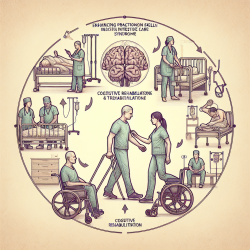Introduction
The field of audiology plays a crucial role in detecting and managing ototoxicity, a condition where pharmaceutical drugs adversely affect the cochlea or auditory nerve, leading to hearing loss. The study titled "What Are the Current Audiological Practices for Ototoxicity Assessment and Management in the South African Healthcare Context?" provides an in-depth look at the current practices in South Africa, highlighting significant gaps between knowledge and practice. This blog aims to help practitioners improve their skills by implementing the study's findings or encouraging further research.
Key Findings
The research involved a survey of 31 audiologists across South Africa, revealing several critical insights:
- Baseline Assessments: Over 71% of audiologists do not conduct baseline assessments prior to treatment initiation, contrary to international standards. This lack of baseline data hinders early detection and intervention.
- Monitoring Frequency: None of the participants adhered to the recommended bi-weekly monitoring. This inconsistency limits the early identification of ototoxic changes.
- Assessment Measures: There is no standard assessment battery used, raising concerns about the reliability and validity of the data for preventive treatment decisions.
- Collaborative Work: The study found a lack of collaborative efforts between audiologists and other healthcare team members, impacting the effectiveness of ototoxicity management.
Recommendations for Practitioners
To enhance audiological practices in South Africa, practitioners should consider the following recommendations based on the study's findings:
- Implement Baseline Assessments: Conduct comprehensive baseline assessments for all patients before starting ototoxic medications to facilitate early detection and intervention.
- Adhere to Monitoring Guidelines: Follow the recommended bi-weekly monitoring schedule to ensure timely identification of ototoxic changes.
- Standardize Assessment Protocols: Use a consistent and validated assessment battery to improve the reliability of data used for decision-making.
- Foster Collaboration: Enhance communication and collaboration with other healthcare professionals to ensure comprehensive management of patients on ototoxic medications.
Conclusion
Improving ototoxicity assessment and management practices in South Africa requires a concerted effort to align current practices with international guidelines. By addressing the gaps identified in the study, audiologists can significantly enhance the quality of care provided to patients, ultimately improving their quality of life. Practitioners are encouraged to delve deeper into the study's findings and consider how they can apply these insights to their practice.
To read the original research paper, please follow this link: What Are the Current Audiological Practices for Ototoxicity Assessment and Management in the South African Healthcare Context?










